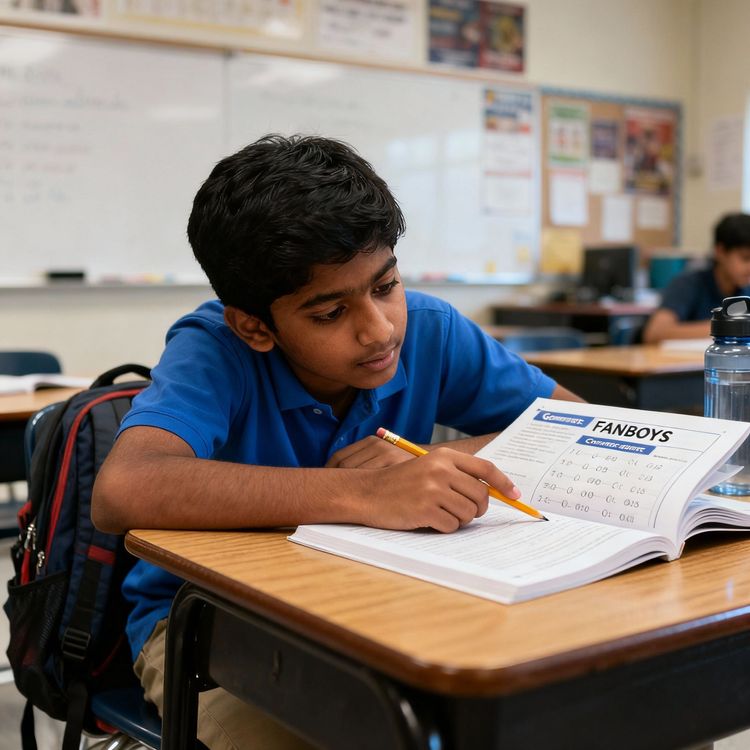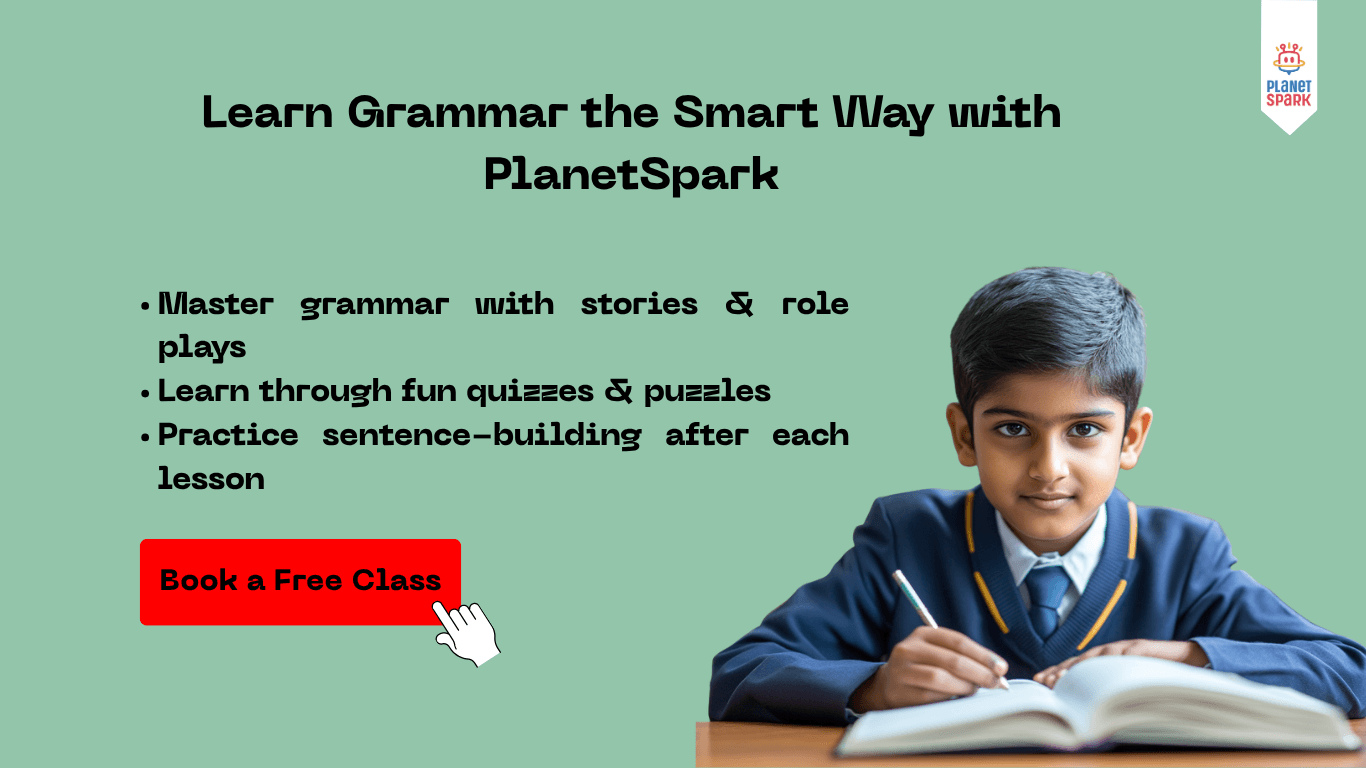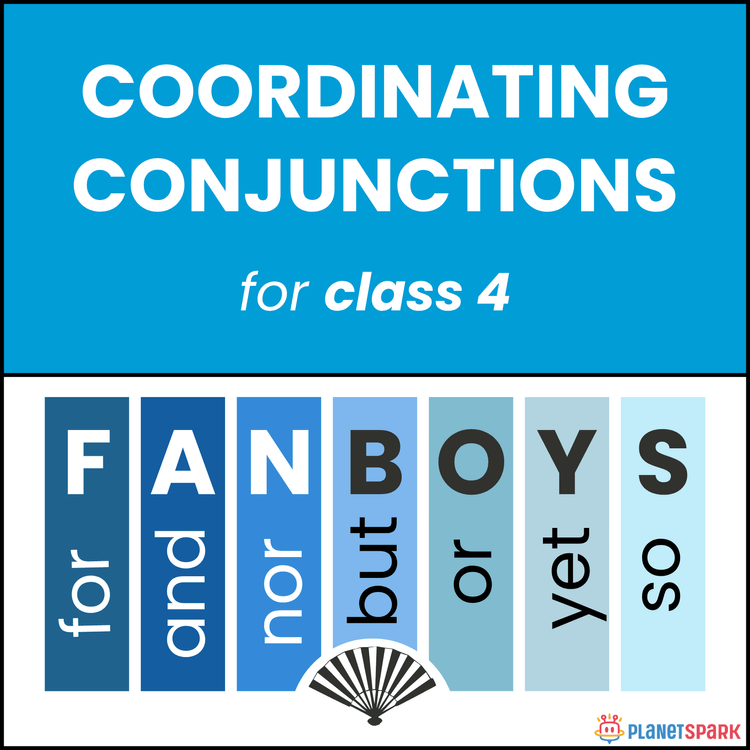FANBOYS Conjunction: Meaning, Examples & Grammar Guide

Table of Contents
- What Are FANBOYS Conjunctions?
- FANBOYS Conjunction Examples and Usage
- Why Are FANBOYS Conjunctions Important?
- Common Mistakes in Using FANBOYS Conjunctions
- How to Teach FANBOYS Conjunctions Effectively
- PlanetSpark English Grammar Course: A Smarter Way to Learn
- Why Choose PlanetSpark for Grammar Mastery?
- Mastering FANBOYS with Confidence – Your Next Step
When learning English grammar, one of the most essential building blocks is understanding conjunctions. Among them, FANBOYS conjunctions hold a special place as they make sentences smoother, more logical, and meaningful. If you’ve ever wondered what FANBOYS are, how to use them correctly, and why they are so important in English grammar, this guide is for you. By the end of this blog, you’ll know everything about FANBOYS, with examples, usage tips, and insights into how you can master them with the right guidance.
What Are FANBOYS Conjunctions?
Understanding Conjunctions in English
Conjunctions are words that connect sentences, phrases, or clauses. They help make your writing flow smoothly and allow ideas to connect meaningfully. Without conjunctions, writing and speech would feel broken or disjointed.
FANBOYS: The Coordinating Conjunctions
The term FANBOYS is a simple acronym that represents the seven coordinating conjunctions in English:
F – For
A – And
N – Nor
B – But
O – Or
Y – Yet
S – So
These are called coordinating conjunctions because they link words, phrases, and independent clauses of equal importance.
Secondary keywords to include: coordinating conjunctions, FANBOYS examples, grammar basics.

FANBOYS Conjunction Examples and Usage
1. For – Expressing Reason
The conjunction “for” is used to show the reason or purpose behind an action. It’s similar to saying “because,” but it is slightly more formal and often used in written English.
Example Sentences:
I stayed home, for it was raining heavily.
She decided not to attend the party, for she was feeling unwell.
He couldn’t complete the project, for he had no internet connection.
Usage Tip:
“For” is not commonly used in everyday spoken English. Most people use “because” in casual speech, but “for” is still grammatically correct and useful in writing.
2. And – Adding Ideas
The conjunction “and” connects two or more similar ideas, words, or phrases. It adds information and is the most commonly used conjunction in English.
Example Sentences:
She likes to sing, and she plays the guitar.
I bought apples, bananas, and oranges.
He opened the window, and the fresh air filled the room.
Usage Tip:
Avoid overusing “and” to create long run-on sentences. Instead, break ideas into shorter, clearer sentences when necessary.
3. Nor – Negative Addition
The conjunction “nor” is used to add a negative idea to another negative statement. It always pairs with another negative word like “not” or “neither.”
Example Sentences:
He doesn’t eat pizza, nor does he like pasta.
She neither called me, nor sent a message.
The film was not interesting, nor was it funny.
Usage Tip:
“Nor” is less common in spoken English but very important in writing and formal communication.
4. But – Showing Contrast
The conjunction “but” introduces a contrast, an exception, or an opposite idea. It helps highlight differences between two connected statements.
Example Sentences:
I wanted to go out, but I was too tired.
She is talented, but she lacks confidence.
The book was long, but very engaging.
Usage Tip:
“But” is often used in both formal and informal speech. To avoid repetitive writing, you can sometimes replace “but” with alternatives like “however” or “yet.”
5. Or – Giving Choices
The conjunction “or” is used to present alternatives, options, or choices. It can connect words, phrases, or full clauses.
Example Sentences:
Would you like tea or coffee?
You can study now, or you can relax later.
We should leave early, or we’ll miss the train.
Usage Tip:
In questions, “or” presents alternatives. In commands, it often shows a warning: “Hurry up, or you’ll be late.”
6. Yet – Contrast with Surprise
The conjunction “yet” shows contrast but often with a sense of surprise or unexpectedness. It’s similar to “but,” but slightly stronger in tone.
Example Sentences:
He is very young, yet incredibly wise.
The movie was long, yet it kept us entertained.
She was nervous, yet she performed perfectly on stage.
Usage Tip:
“Yet” is commonly used in writing to make contrast stronger or more dramatic. It can often replace “but” for more emphasis.
7. So – Showing Result or Effect
The conjunction “so” indicates the effect, result, or consequence of an action. It connects cause with effect.
Example Sentences:
It started to rain, so we stayed indoors.
He studied hard, so he passed the exam.
The shop was closed, so we went to another one.
Usage Tip:
“So” is one of the easiest conjunctions for children to understand because it directly connects cause and effect.
Quick Summary Table for FANBOYS
| Conjunction | Function | Example |
|---|---|---|
| For | Shows reason | I stayed home, for it was raining. |
| And | Adds ideas | She sings and plays guitar. |
| Nor | Negative addition | He doesn’t like pizza, nor pasta. |
| But | Shows contrast | She is shy, but confident on stage. |
| Or | Gives choices | Tea or coffee? |
| Yet | Contrast with surprise | He is young, yet wise. |
| So | Shows result | It rained, so we stayed home. |
Why Are FANBOYS Conjunctions Important?
Building Sentence Fluency
Using FANBOYS conjunctions helps your sentences flow more naturally. Instead of writing short, choppy statements, you can combine them into smooth, cohesive thoughts.
Improving Communication Skills
When you know how to use coordinating conjunctions, you can express yourself more clearly. For example:
Without conjunction: I was hungry. I ate a sandwich.
With conjunction: I was hungry, so I ate a sandwich.
Writing and Speaking Confidence
Mastering FANBOYS gives learners the ability to write essays, stories, or even conversations that feel polished and professional.
Common Mistakes in Using FANBOYS Conjunctions
1. Overusing Them
Some learners connect too many ideas in one sentence using conjunctions, which makes writing confusing.
2. Forgetting Punctuation Rules
When FANBOYS join two independent clauses, a comma should usually be placed before the conjunction.
Correct: I love reading, but I don’t enjoy writing.
Incorrect: I love reading but I don’t enjoy writing.
3. Using Them in Fragments
Avoid starting a sentence with FANBOYS unless you’re connecting it to the previous thought for emphasis.
How to Teach FANBOYS Conjunctions Effectively
Storytelling and Dialogues
Instead of memorizing rules, kids understand better through relatable stories. Example: “Sam wanted to play, but it started raining.”
Games and Quizzes
Gamified exercises such as “pick the correct conjunction” or fill-in-the-blanks make learning fun.
Writing Exercises
Encouraging children to write sentences and combine ideas using FANBOYS helps strengthen grammar skills.
PlanetSpark English Grammar Course: A Smarter Way to Learn
Interactive Grammar Learning – No Rote Learning
PlanetSpark uses stories, dialogues, and role plays to teach grammar. Children learn how FANBOYS and other conjunctions are used in real-life situations instead of just memorizing rules.
Gamified Learning Tools
Through quizzes, puzzles, and games, grammar becomes exciting. FANBOYS conjunctions are reinforced with competitive challenges that make kids eager to practice.
Integrated Writing Practice
Each grammar lesson is followed by writing tasks where children apply FANBOYS in their sentences and paragraphs, ensuring practical understanding.
Grammar Proficiency Levels
Students progress step by step – starting with basics like nouns and verbs, then moving to conjunctions, conditionals, and advanced grammar.
1:1 Personal Trainers for Every Child
PlanetSpark ensures every child gets a dedicated trainer who focuses on grammar, fluency, and confidence. The mentor provides immediate feedback and customizes lessons to the child’s pace.
SparkX – AI-Enabled Learning
With AI-based video analysis, children get feedback on grammar usage, sentence construction, and speaking fluency. It helps them identify errors in conjunction usage and improve faster.
Gamified Learning and Clubs
From Grammar Guru Challenges to debate and storytelling clubs, PlanetSpark makes grammar practice collaborative, fun, and interactive. Children not only learn conjunctions but also use them confidently in speaking and writing.

Why Choose PlanetSpark for Grammar Mastery?
Personalised curriculum and detailed reports.
Fun, engaging, and result-driven approach.
Practical application of grammar in speaking, writing, and storytelling.
Boosts confidence, fluency, and creativity
Mastering FANBOYS with Confidence – Your Next Step
FANBOYS conjunctions are more than just grammar rules; they are the keys to expressing ideas smoothly, confidently, and logically. Whether your child is writing essays, preparing for school projects, or simply improving spoken English, mastering these conjunctions will make a huge difference.
At PlanetSpark, grammar learning is not just effective but also enjoyable. With one-on-one mentoring, AI-based feedback, gamified activities, and creative clubs, children develop strong grammar foundations and apply them in real-world communication.
You may also read
Frequently Asked Questions
FANBOYS is an acronym for the seven coordinating conjunctions in English: For, And, Nor, But, Or, Yet, So. These words connect words, phrases, or independent clauses of equal importance.
They help build smoother, more logical sentences by connecting ideas effectively. FANBOYS make writing and speaking clearer, more fluent, and professional.
The acronym FANBOYS itself makes it simple to recall: For, And, Nor, But, Or, Yet, So. Practicing with examples in writing and conversations helps reinforce them.
Yes, a sentence can start with conjunctions like But, And, or So for emphasis, but they should be used carefully and not overdone to avoid informal tone.
Children learn best through interactive methods like stories, dialogues, games, and writing tasks. Enrolling in programs like the PlanetSpark English Grammar Course makes learning conjunctions engaging and practical.
Download Free Worksheets
Personalized Communication Report
Record a video to get a AI generated personalized communication report for your child

Hi There, want to try these
tips for your child with
LIVE with our expert coach?
Let's check your child's
English fluency

